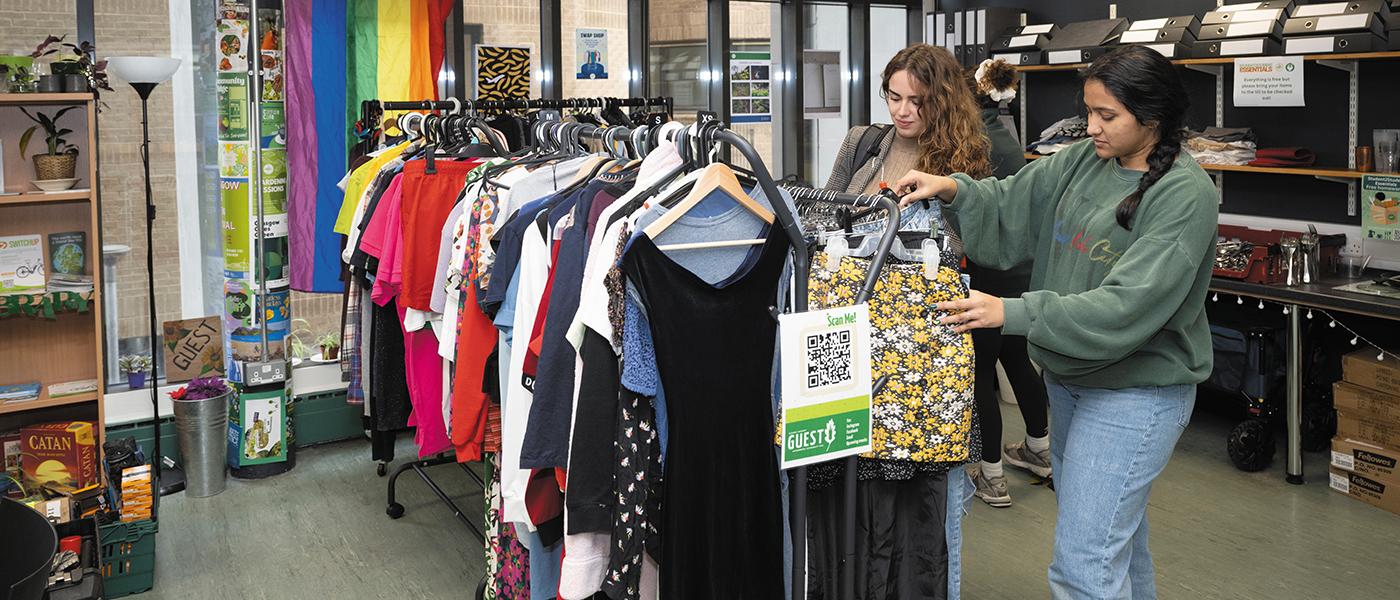UN SDG 12: Responsible consumption and production
Ensure sustainable consumption and production patterns
Our research

Heating buildings is a major contributor to carbon emissions in Scotland and across the UK, particularly due to the consumption of gas within central heating systems and poor insulation.
Dr Ahmad Taha from the University of Glasgow and Dr Alejandro Moreno-Rangel from the University of Strathclyde are working with West of Scotland Housing Association and Glasgow City Council to explore the feasibility of electric wallpaper as a viable, eco-friendly replacement for gas central heating. The technology, which uses the Internet-of-Things and AI-enabled data analytics to collect information on efficiency, comfort and tenants’ feedback, is being piloted in properties owned and managed by West of Scotland Housing Association.
Funded by Scotland Beyond Net Zero – a coalition of leading climate and sustainability experts from Scotland’s universities – this trial is one of eight new research collaborations aimed at accelerating Scotland’s transition to net zero. Each project involves cross-sector collaborations to address sustainability challenges in energy, finance, food, the built environment, natural systems and transport.
Learning & teaching

Computing science students at Glasgow are set to become the first in the UK to have specific material about the environmental impact of digital technologies integrated into their undergraduate curriculum.
Researchers estimate that by 2040 emissions from computing alone could consume more than half of the world’s carbon budget available to limit global heating to 1.5°C above pre-industrial levels. The energy demands of powering computers and data centres make up around 70% of the computing sector’s carbon emissions.
BSc students at the School of Computing Science will be regularly taught and assessed about the sustainability implications of their chosen field of study.
The school’s updated curriculum aims to help future generations of computing scientists play leading roles in reducing the ecological harms of the digital world. It will focus on understanding and assessing the problem of emissions from computing at a global scale, with a focus on the specific systems that students design and develop.

Our Eco-Hub is a social space that promotes sustainability on campus. Services provided help address the cost of living and the climate crisis.
University operations

The University’s Eco-Hub is a social space that promotes sustainability on campus. It acts as a meeting point for staff, students and the wider community to come together to discuss and build a sustainable world. Services provided help address the cost of living and the climate crisis.
The Eco-Hub has coffee and tea facilities, as well as a community fridge with free food available for everyone. It houses a permanent clothes and homeware swap-shop and a collection of educational resources on the environment. The Eco-Hub hosts bike repair sessions and practical workshops such as clothing repair and sustainable crafting.
Find out more
Civic engagement

The ‘After the Garden Festival’ archaeological team, led by Glasgow archaeologists, is again digging deep into the site of the iconic 1988 Glasgow Garden Festival. Following a successful trial excavation in spring 2022, the archaeologists are embarking on their second season to unearth the hidden remnants of this much-loved event.
In May 2022 excavation and survey in Festival Park showed that some Garden Festival features still survive, hidden beneath grass, while others survive hidden in plain sight. Excavations also found several coins that were probably thrown into Festival water features in 1988.
This time the archaeology team will be concentrating on two key Garden Festival sites – the route of the beloved mini-train line that once looped around the site, and the fascinating Antonine Gardens, a recreated Roman bathhouse in Bearsden on the northern outskirts of Glasgow.
While the team know where both were located from mapping, historical aerial photographs, photographs shared by the public and their 2022 geophysical survey, they now hope to find surviving physical evidence of the Festival.



















